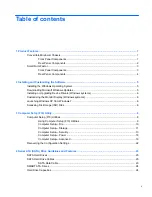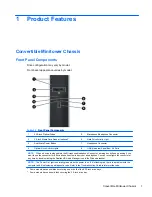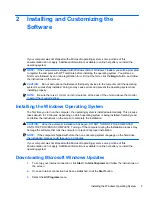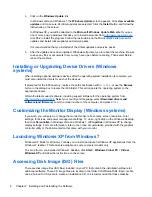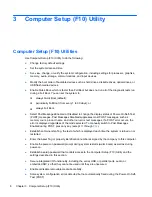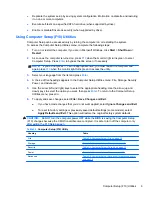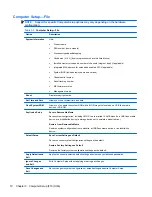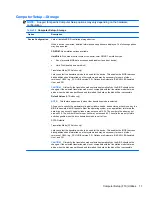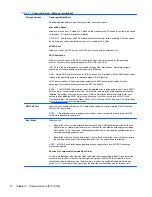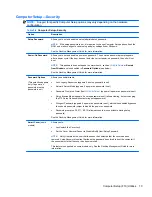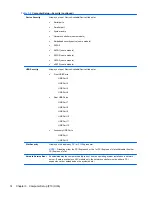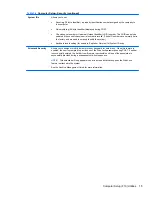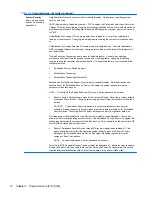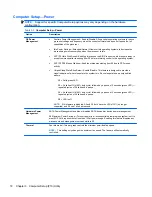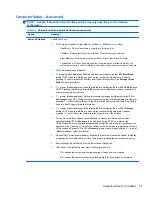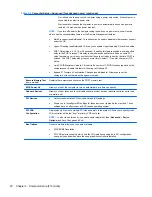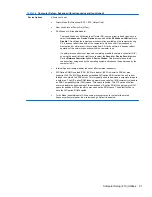
4.
Click on the
Windows Update
link.
In Windows Vista and Windows 7, the
Windows Update
screen appears. Click
view available
updates
and make sure all critical updates are selected. Click the
Install
button and follow the
instructions on the screen.
In Windows XP, you will be directed to the
Microsoft Windows Update Web site
. If you see
one or more pop-up windows that ask you to install a program from
http://www.microsoft.com
,
click
Yes
to install the program. Follow the instructions on the Microsoft Web site to scan for
updates and install critical updates and service packs.
It is recommended that you install all of the critical updates and service packs.
5.
After the updates have been installed, Windows will prompt you to reboot the machine. Be sure
to save any files or documents that you may have open before rebooting. Then select
Yes
to
reboot the machine.
Installing or Upgrading Device Drivers (Windows
systems)
When installing optional hardware devices after the operating system installation is complete, you
must also install the drivers for each of the devices.
If prompted for the i386 directory, replace the path specification with
C:\i386
, or use the
Browse
button in the dialog box to locate the i386 folder. This action points the operating system to the
appropriate drivers.
Obtain the latest support software, including support software for the operating system from
http://www.hp.com/support
. Select your country and language, select
Download drivers and
software (and firmware)
, enter the model number of the computer, and press
Enter
.
Customizing the Monitor Display (Windows systems)
If you wish, you can select or change the monitor model, refresh rates, screen resolution, color
settings, font sizes, and power management settings. To do so, right-click on the Windows Desktop,
then click
Personalize
in Windows Vista and Windows 7 or
Properties
in Windows XP to change
display settings. For more information, refer to the online documentation provided with the graphics
controller utility or the documentation that came with your monitor.
Launching Windows XP from Windows 7
Windows XP Mode for Windows 7 allows you to install and launch Windows XP applications from the
Windows 7 taskbar. This feature is available on some computer models only.
To set up from a pre-installed Windows 7 desktop, click
Start
>
Windows Virtual PC
>
Virtual
Windows XP
and follow the instructions on the screen.
Accessing Disk Image (ISO) Files
There are disk image files (ISO files) included on your PC that contain the installation software for
additional software. These CD image files are located in the folder C:\SWSetup\ISOs. Each .iso file
can be burned to CD media to create an installation CD. It is recommended that these disks be
6
Chapter 2 Installing and Customizing the Software




